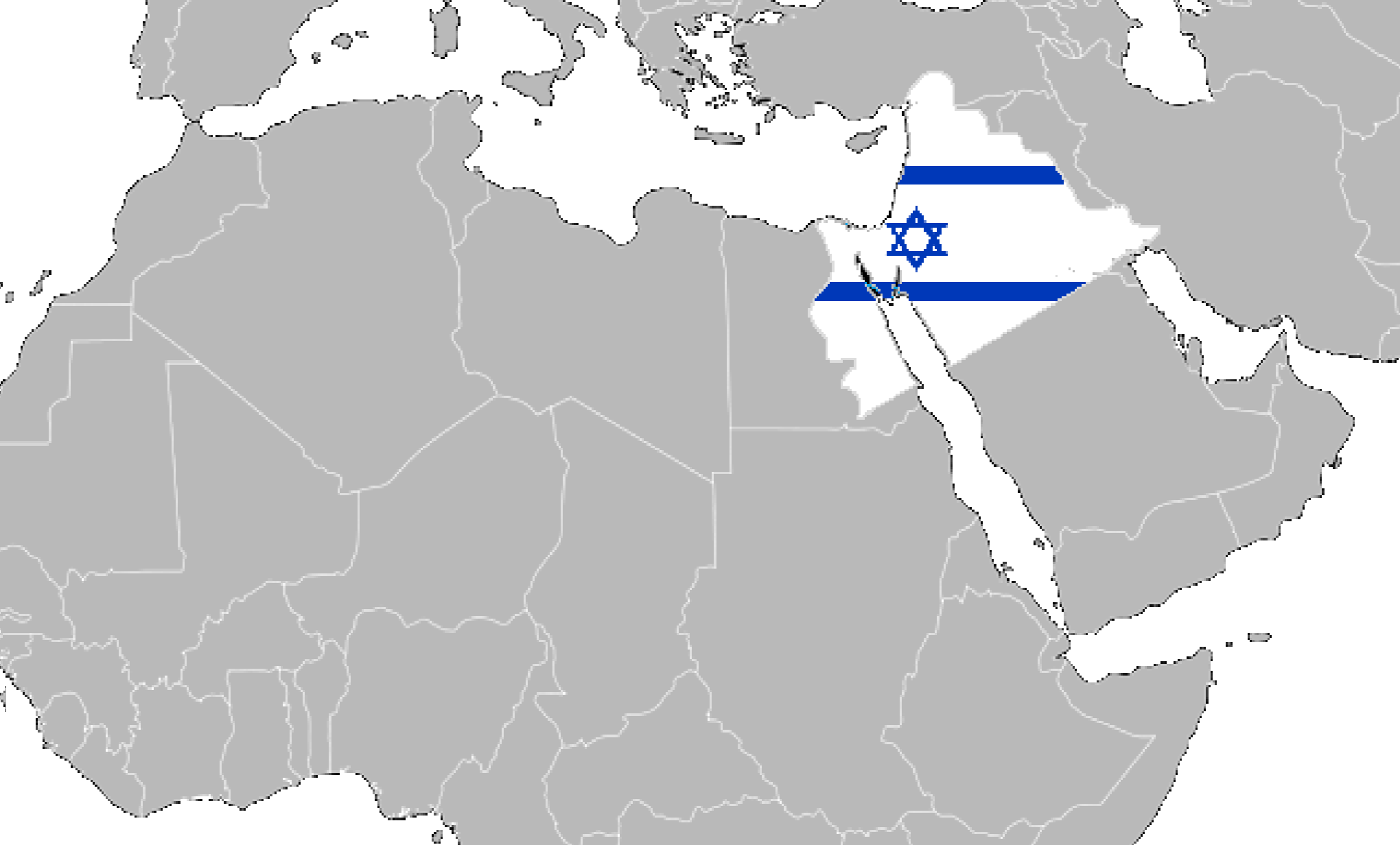
Views: 4295
After the first ever cabinet meeting in the Golan Heights, Israeli Prime minister Benjamin Netanyahu said in a speech on April 17, 2016 that the territory “will remain under Israel’s sovereignty permanently.” This elicited admonitions from some of Israel’s greatest allies, the United States and Germany, and renewed attention on the issue.
 The Golan Heights were opportunistically occupied by Israel after its victory in the 1967 six-day-war. A United Nations Disengagement Observer Force (UNDOF) has monitored the region since 1974, when Israel and Syria signed a ceasefire agreement, and it has been considered an occupied territory of the UN and the international community. In violation of this ceasefire, Israel effectively annexed the territory in 1981 by extending its laws and governmental apparatus over it. Most of the native population has been displaced and over 30 settlements have been constructed to house Jewish settlers. These settlements, like those in the West Bank, are illegal under international law.
The Golan Heights were opportunistically occupied by Israel after its victory in the 1967 six-day-war. A United Nations Disengagement Observer Force (UNDOF) has monitored the region since 1974, when Israel and Syria signed a ceasefire agreement, and it has been considered an occupied territory of the UN and the international community. In violation of this ceasefire, Israel effectively annexed the territory in 1981 by extending its laws and governmental apparatus over it. Most of the native population has been displaced and over 30 settlements have been constructed to house Jewish settlers. These settlements, like those in the West Bank, are illegal under international law.
The current escalation is really about oil. Since 2013, the Netanyahu government has granted exclusive oil and gas exploration rights to the oil company Afek Energy in a 153-square mile radius in the southern part of the Golan Heights. Afek Energy is an Israeli subsidiary of the US firm, Genie Energy. Afek’s director is former Israeli Housing Minister Effie Eitam, who is an illegal settler in the Golan Heights himself and is responsible for the fatal beatings of numerous Palestinians. Genie Energy’s strategy-advisory board includes former US Vice President Dick Cheney, media tycoon Rupert Murdoch, and former Secretary of the Treasury Larry Summers. Other prominent names include Jacob Lord Rothschild, former CIA director and neocon James Woolsey, and former Energy Secretary Bill Richardson.
Given the clout that these figures wield in US politics, it is unlikely that the US is serious about its admonishments to Israel. Germany’s Foreign Ministry has also criticized Israel´s move as being against international law, but both the US and Germany have declined to call for the Golan Heights to be returned to Syria, citing Syria’s internal situation as a justification. If the US is indeed frustrated with Israel’s behavior, as Vice President Biden recently said, it has a funny way of showing it: the Obama administration recently agreed to grant a $3.2 to $5 billion military-aid package to Israel, its largest ever. Germany is Israel’s next largest donor and military trading partner, which suggest that the indignation is mostly symbolic.
The ascent of Genie Energy, a small Newark-based company, to such geopolitical machinations goes back to the discovery of the Levant Basin (also known as the Leviathan Basin) off the Mediterranean coast in 2010, and the confirmation of first deposits of natural gas in the Golan Heights in 2011. The Levant Basin extends from the Northeastern coast of Egypt to the Northwestern coast of Syria and covers a vast area within the territorial waters of Egypt, Israel, Gaza, Lebanon and Syria. Shortly after this discovery and the announcement that Israel intended to begin exploration and drilling, the government of Lebanon objected to the unilateral move, given the fact that the deposits extend into Lebanese territory. In an interview, Israel’s Minister of National infrastructure said that Israel would “not hesitate to use our force and strength” to protect the drilling operations. The Israeli energy giant Delek Group partnered with the US company Noble Energy to develop the exploitation of the reserves, which, according to a 2010 US Geological Survey, amounted to “approximately 122 trillion cubic feet of natural gas, with a current market value of $240 billion.”
Shale gas deposits were also found in Shfela valley in July 2011, and the Israeli Energy Initiative, a subsidiary of Genie Energy, was granted the drilling rights. Three months later, US Senator Mary Landrieu led the first official US Energy Mission to Israel, whose goal was to “introduce US firms to Israel’s rapidly expanding oil and gas market and to assist US companies pursuing export opportunities in this sector,” according to the US Department of Commerce. In reality, Landrieu was lobbying on behalf of Noble and Genie. But local environmental activists, and a consequent Knesset bill halted the venture in the Shfela Valley. By the time the bill passed, most of the company’s employees had moved to its sister subsidiary, Afek Energy.
US Treasury Secretary, Tim Geithner, and Israeli Treasury Director General, Doron Cohen, hosted the US-Israel Joint Economic Development Group (JEDG) in Washington on October 24, 2012. After the meeting, the JEDG signed an agreement to extend US loan guarantees of $3.8 billion to Israel to 2016, in order to develop its natural gas industry. In essence, the Obama administration gave $3.8 billion of taxpayers’ money to Israel, so that they could use it to benefit the investments and interests of American and Israeli oil companies. Given this financial backing and success of her first mission, Landrieu sent a second delegation of 12 energy (gas and oil) company representatives to Israel. During a roundtable discussion hosted by Landrieu and the Chair of Israel’s oil and gas association, Uri Aldubi, “the delegation received presentations from Noble Energy, Zion Oil, and Genie Energy.” They also met with Uzi Landau, Israel’s Minister of National Infrastructure.
All the while, the US ambassador to Israel lobbied Israeli Members of Knesset (MKs) to support legislation that would favor the gas and oil industry, particularly after the botched project in the Shfela Valley. These efforts were largely successful and resulted in the 2013-14 US-Israel Energy Cooperation Bill, which is intended to foster cooperation between Israeli and American energy companies in the exploitation of these “strategic” reserves.
After the passage of the US-Israel Energy Cooperation bill and grant of rights in the area, Afek Energy continued its exploratory and drilling operations. In October 2015, Israel and Afek Energy announced the discovery of oil reserves of 10 times the global average and capable of ensuring Israel’s energy sufficiency for many years. The announcement did not garner much attention outside the industry, but its connection to the recent militarization of the area by Israel was not coincidental. During a Washington visit on November 9, Benjamin Netanyahu asked President Barack Obama to back a formal Israeli annexation of the Golan Heights, citing the dysfunctional Syrian government, gripped by a foreign-backed civil war. He failed to mention that Israel was undermining the Assad regime and Hezbollah forces that were attempting to thwart ISIS in the region. Other political figures within Israel, such as Zvi Hauser, claimed that Israel should demand this annexation as a compensation for having tolerated the nuclear agreement with Iran.
 In the past year Israel has intensified its military presence in the region and contributed to the armed conflict by utilizing the region as a staging and support ground for anti-Assad Islamist groups. As far back as 2012, UNDOF reported that Israel Defense Forces (IDF) soldiers were seen providing military and medical aid, on numerous occasions, to al-Nusra affiliated extremist groups engaged in hostilities against President Bashar al Assad in the South of Syria. In the week leading up to Netanyahu’s announcement of unilateral annexation, the Israeli military forces practiced a series of weeklong drills in the region, as well as along the border with Lebanon, in an apparent show of force. More recently, there have been reports of Israeli weapon shipments also being seized along Syria’s southern border, and intended for rebel groups in Syria. This suggests that the area is being used as a staging ground to destabilize the Assad regime even while this destabilization serves as a justification for the annexation.
In the past year Israel has intensified its military presence in the region and contributed to the armed conflict by utilizing the region as a staging and support ground for anti-Assad Islamist groups. As far back as 2012, UNDOF reported that Israel Defense Forces (IDF) soldiers were seen providing military and medical aid, on numerous occasions, to al-Nusra affiliated extremist groups engaged in hostilities against President Bashar al Assad in the South of Syria. In the week leading up to Netanyahu’s announcement of unilateral annexation, the Israeli military forces practiced a series of weeklong drills in the region, as well as along the border with Lebanon, in an apparent show of force. More recently, there have been reports of Israeli weapon shipments also being seized along Syria’s southern border, and intended for rebel groups in Syria. This suggests that the area is being used as a staging ground to destabilize the Assad regime even while this destabilization serves as a justification for the annexation.
Perhaps the IDF worries that the Syrian Arab Army, with the help of the Russian Aerospace Forces, is regaining territory formerly under rebel control and that, once this task is achieved, Assad might turn his eyes to the Golan Heights. Whatever the reason, a military escalation in the area coincides with the establishment of enormous economic interests, and these interests are linked to some of the most powerful individuals in the world. Political lobbying is taking place at the highest levels to ensure that the international community recognizes Israel’s claims of sovereignty over the region. For her services to the gas and oil industry, Ms. Landrieu has received tens of thousands of dollars of political contributions from both Genie and Noble Energy between 2010 and 2014. When this failed to get her reelected, she was quickly ensured a spot on Genie Energy’s Strategic Advisory Board, where she is still employed.
Originally published on 2016-05-07
Author: Ruben Rosenberg Colorni
Source: News Junkie Post
Origins of images: Facebook, Twitter, Wikimedia, Wikipedia, Flickr, Google, Imageinjection, Public Domain & Pinterest.
Read our Disclaimer/Legal Statement!
Donate to Support Us
We would like to ask you to consider a small donation to help our team keep working. We accept no advertising and rely only on you, our readers, to keep us digging the truth on history, global politics and international relations.
[wpedon id=”4696″ align=”left”]
FOLLOW US ON OUR SOCIAL PLATFORMS









